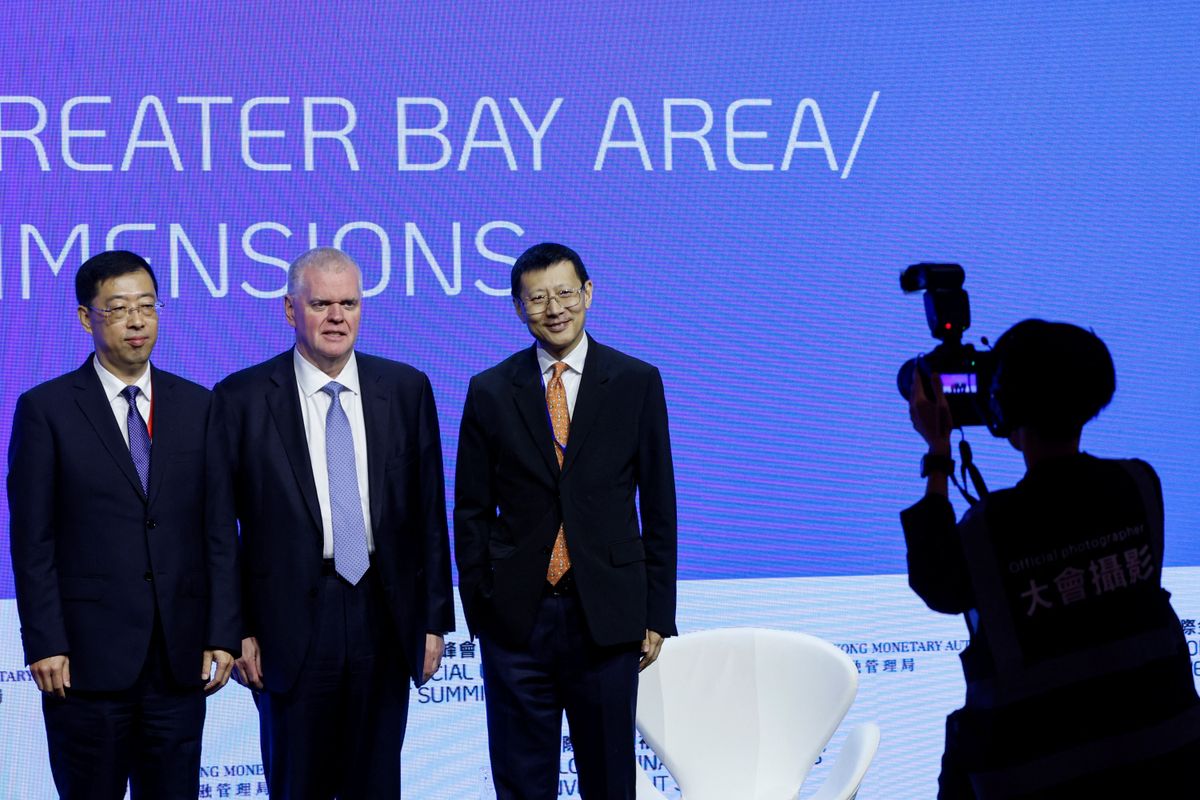Highlights from Hong Kong's Global Financial Leaders’ Investment Summit
This week, Hong Kong hosted the Global Financial Leaders’ Investment Summit.

A few minutes every morning is all you need.
Stay up to date on the world's Headlines and Human Stories. It's fun, it's factual, it's fluff-free.
The backstory: Over the past few years, Hong Kong has weathered some economic storms, mainly due to COVID restrictions and mainland China's zero-COVID policy. The city saw a 3.5% contraction in its economy last year, leading to a significant exodus of businesses and talent. This year brought a noteworthy shift when the government decided to relax COVID restrictions and reopen its borders with mainland China. But challenges like a labor shortage and a recovering real estate market persist.
Set against the backdrop of China's economic slowdown, a slump in the property market and escalating geopolitical tensions, the International Monetary Fund (IMF) last month predicted a decline in the nation’s economic growth for the following year. Foreign direct investment in China also saw an historic negative turn.
The development: This week, Hong Kong hosted the Global Financial Leaders’ Investment Summit featuring heavyweights like Citadel’s Ken Griffin and Goldman Sachs’ David Solomon. The event, spanning from November 6 to 8, revolved around the theme of "Living With Complexity." Here are some highlights from the summit:
Hedge fund execs Paul Marshall and Chris Gradel voiced concerns about a hedge fund business model featuring big payouts, sparking fierce talent competition. They flagged a worrisome cycle where employees frequently hop between firms, enticed by generous sign-on bonuses – what they call a "merry-go-around" with downsides in finance.
Also, the CEO of logistics company GLP, Ming Mei, expressed support for China's 5% growth goal, citing the nation’s surge in trucking activity. BlackRock saw potential in China's push for diversifying retirement savings away from real estate and into capital-markets-driven investments.
Yet, worries surfaced about the US deficit, as BlackRock cautioned on the country’s fiscal unsustainability. Fidelity's Anne Richards noted the US’ dependence on global good faith to maintain its status as a reserve currency. She also said that central banks would likely act moderately during a US election year Capital Group’s Mike Gitlin discussed a potential bond investment window if the US Fed is really considering slowing down on interest rate hikes.
Zhang Qingsong, deputy governor of the People’s Bank of China, said that “the old growth model relying heavily on infrastructure investment and the real estate sector is no longer sustainable.” But he did say he was optimistic about the future of the property sector.
Key comments:
“I think this is a temporary phase. It is a very bad phase,” said PAG’s Chris Gradel, referring to the fierce talent competition sparked by finance companies offering big sign-on bonuses. “It’s not good for the clients. It’s not good for the industry.”
“Cyclically, this is a difficult time in China,” said BlackRock’s Senior Managing Director Mark Wiedman “People talk about China like US-China tensions are the driver. It’s actually domestic policies, domestic investments that are the long-term opportunities in China.”
“Sometimes the US forgets that it relies on the kindness of strangers to keep the investments flowing towards its key markets in a way that it likes,” said Anne Richards, CEO of Fidelity International. “There is a moment – if the US doesn’t build that into policy – there will be chickens coming home to roost.”




Comments ()